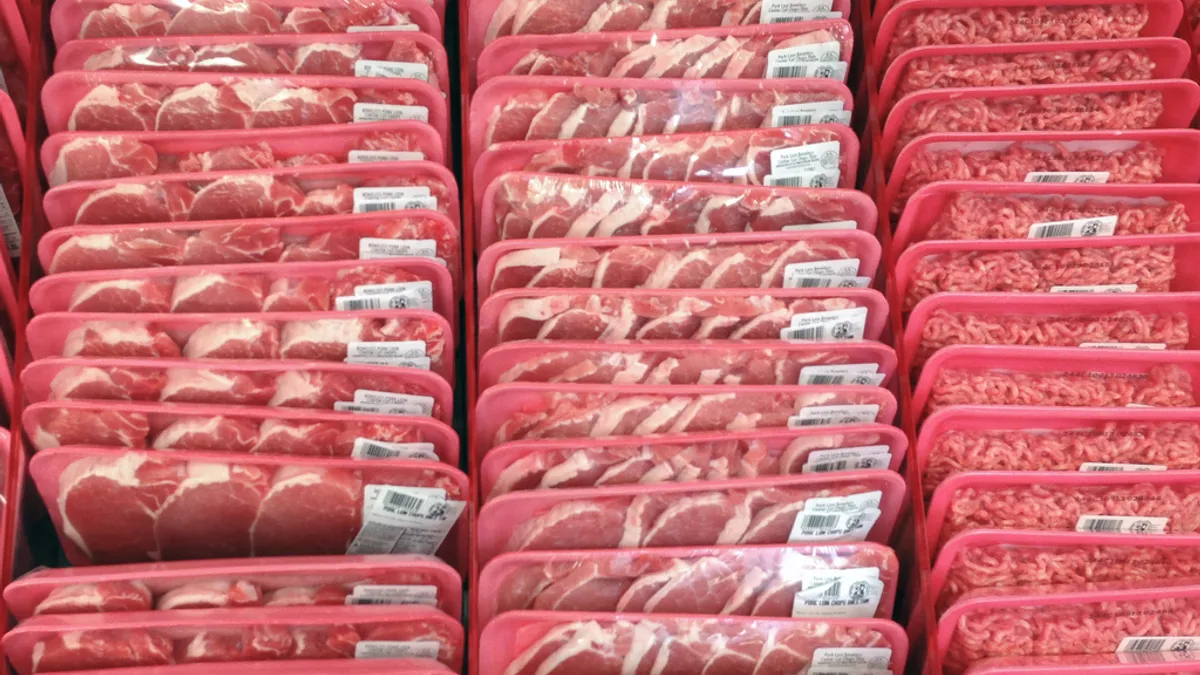Dive Brief:
- In Progressive Grocers’ annual industry report, 67% of retailers reported that their meat department had the most influence on their brand image, while 69.5% reported that private label is their best way to boost the store experience.
- When asked what topics were keeping them up at night, 43% of retailers responded with “competitive threats.” That was the third most common answer, jumping from 14th place last year.
- On-site butchers and community programs were the top services retailers said their stores offered. New to the list was “produce butchers,” which companies like Whole Foods and Lowes Foods now offer.
Dive Insight:
Conventional thinking suggests that produce is the most important department in determining a grocer’s image. But as this report shows, meat, though certainly less colorful, could play a bigger role.
Further research supports this as well. According to the latest version of “The Power of Meat,” an annual study compiled by the Food Marketing Institute and 210 Analytics, meat purchases comprise at least 20% of most grocers' weekly sales. The study found that meat is the third most important department in determining where consumers shop, but it carries more sales potential than most categories. High-performing meat departments can account for as much as 40% of weekly sales, the report found, and shopper baskets that have meat in them jump in value from $41 to $83.
“We have to get meat right,” said Anne-Marie Roerink, principal of 210 Analytics, during the report presentation earlier this year.
The Progressive Grocer report also underscored the value of private label as a differentiator, with more than two-thirds of respondents saying it was the best way to boost in-store experience for shoppers. This comes as no surprise considering the advancements Kroger, Whole Foods, Southeastern Grocers and others have made in recent years. H-E-B carries a line of Totally Texas products that celebrate the Lone Star State, while Ahold Delhaize sells limited-time offer store brands.
Over the next few years, it will be interesting to see how stores balance their private label offerings with growing demand for emerging brands and local products. Grocers should also keep an eye on how competitors evolve their meat marketing to increase basket sizes and the department’s share of store sales.










